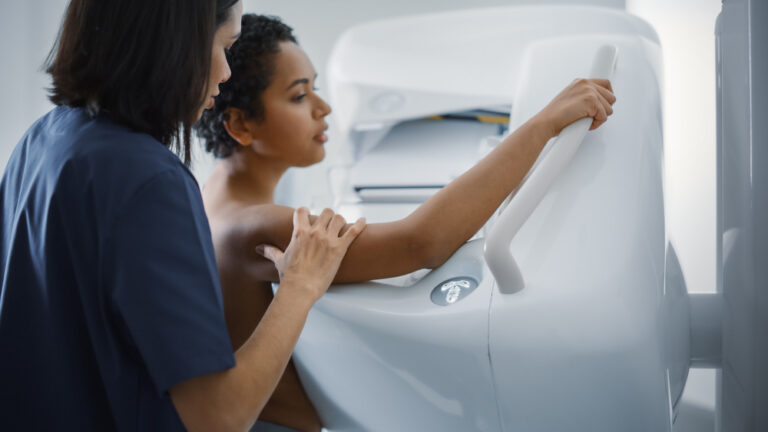Why women shouldn’t hesitate to schedule a mammogram
By Stacey Stein
Breast cancer may be one of the top three cancers worldwide, but the good news is it’s highly treatable, especially when detected early.
In Bermuda, a high mammography screening rate means a significant proportion of breast cancer patients are being diagnosed and treated early.
“Mammography is the gold standard for breast screening – it’s a fantastic tool that we’re lucky to have,” says Rebeca Morales, a radiographer/mammography technologist at Bermuda Cancer and Health Centre in Hamilton. Describing the difference between different diagnostic tools, Morales explains that a mammogram uses X-rays, whereas an MRI uses a magnet and an ultrasound uses soundwaves.
According to the Bermuda National Tumour Registry, out of the 320 females and two males diagnosed with breast cancer between 2014 and 2017, 91 percent of cases were detected in the early stages, when treatment is most effective.
But robust screening tools are only one piece of the puzzle when it comes to early detection. Being proactive is just as important. This means advocating for yourself and taking your personal healthcare into your own hands. One example of this is performing regular self-exams.
“Self-exams are a great way to stay conscious of any breast-related changes you might have experienced recently. We encourage all women to perform regular self-exams and get mammograms,” says Morales, adding mammograms can detect subtle changes in tissue that a self-exam won’t uncover. “It’s not an either/or kind of thing. Do both!” she says.
Women should begin having regular mammograms at the age of 40, unless advised otherwise by their doctor, according to Morales. Regular screening is crucial because radiologists (doctors who examine mammograms, breast ultrasounds and MRIs) look for subtle changes within the breast that can sometimes only be noticed by comparing new images to images from previous years. In addition to a yearly mammogram, women with dense breast tissue may also benefit from having an ultrasound exam.
Mammogram frequency depends on family history and medical advice, but annual mammograms are a good rule of thumb for most women. While 40 may be a benchmark, some women should consider getting a mammogram even earlier.
“If a 32-year-old woman is experiencing symptoms consistent with breast cancer, a doctor may recommend she get a mammogram to rule out anything serious,” says Morales.
Here’s something else to feel good about: nearly all breast cancers can be treated on-island as Bermuda’s health-care providers offer a comprehensive range of early detection, diagnostic, and treatment options for breast cancer, including the state-of-the-art technology used by Bermuda Cancer and Health Centre.
Leading edge tools paired with self-advocacy can go a long way toward ensuring successful health outcomes. Seeking advice from reliable sources – like your healthcare providers – is important too.
“Trust the advice of your physician,” Morales advises. “You know your body, but there is a lot of misinformation out there. So, ask questions of trustworthy sources! Along with your doctor, we’re always here to help and we’re happy to answer any questions we can.”

